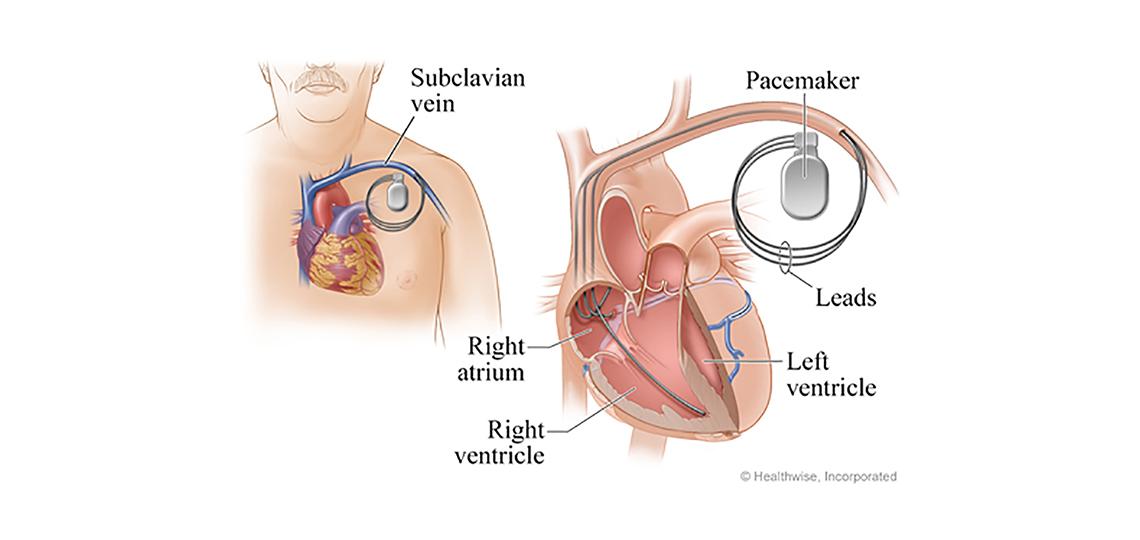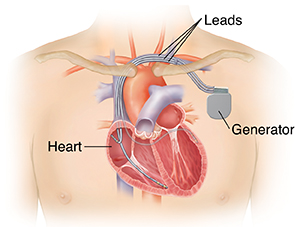Gorgeous! Why Would I Need A Pacemaker
This is where electrical signals pass from the atria to the ventricles. A heart-healthy lifestyle will provide your heart with optimal conditions for good health and will allow the pacemaker to have its maximum beneficial effect.

Could You Need A Pacemaker And Not Know It Vein Heart And Vascular Institute Cardiovascular Doctors
Your pulse is rapid and irregular above 120 beats per minute and your pacemaker is programmed for a fast-slow type of heartbeat.

Why would i need a pacemaker. A slow heartbeat is one reason why you may need a pacemaker to monitor your heart rate and stimulate your heart to pump more quickly. Each time the heart beats the heart muscle contracts pulls inwards in preparation for pumping blood around the body. This is known as cardiac resynchronization therapy CRT.
You take certain heart medicines. In the UK pacemaker implantation is one of the most common types of heart surgery carried out with many thousands of pacemakers fitted each year. Otherwise healthy people with irregular heart rhythms may need a pacemaker to normalize their heart rhythms.
Implantable defibrillators in particular are placed to prevent death from a heart rhythm abnormality. In such cases cardiologist may adjust the heart rate and heart contraction using pacemaker. In particular providers who recommend certain tests or treatments such as TENS machines used by physical therapists MRI scans X-rays and extracorporeal shock-wave.
You notice a sudden slowing of your heart rate. After you have a pacemaker your heart still does all its own work. Pacemakers are sometimes recommended for people with conditions that cause the heart to beat abnormally.
Pacemaker users are not automatically unhealthy. While not all heart conditions or irregular heartbeats are treated with pacemakers there are some signs to indicate who needs a pacemaker. Having a pacemaker can significantly improve your quality of life if you have problems with a slow heart rate.
Some people need a special type of pacemaker called a biventricular pacemaker or bivent. Pacemakers tiny implantable computers that speed up a slow heart rhythm help millions of people from newborns to 90-year-olds. Some people need a special type of pacemaker called a biventricular pacemaker or bivent.
Pacemaker Its a small device that monitors your heartbeat and sends out a signal to stimulate your heart if it. When this natural electrical system isnt functioning properly an implanted pacemaker can provide an assist that keeps your heart beating at a life-sustaining rhythm and rate. Since the first fully implanted pacemaker in 1958 millions of people around the world have benefited from pacemaker therapy.
A pacemaker can keep your heart beating as it should and in the process help restore the physical energy and health often lost with many cardiac conditions. During an arrhythmia the heart can beat too fast too slow or with an irregular rhythm. With each heartbeat an electrical impulse travels from the top of.
A pacemaker is a small electronic device that helps regulate slow electrical problems in the heart. Dont worry if your heart is beating close to or within the intended heart rate but has an occasional irregularity. Pacemakers send electrical pulses to help your heart beat at a normal rate and rhythm.
An abnormal heart rhythm arrhythmia can cause death. You may be surprised to learn that your heart has a built-in electrical system that controls the rate and rhythm of your heartbeat but its key to your overall health. You may need a bivent if you have severe heart failure.
Why do I need a pacemaker. A bivent makes the two sides of the heart beat in sync. Lifelong endurance athletes sometimes require a pacemaker to keep their resting heart rate high enough.
Before the device corrects that episode you could get dizzy light headed or pass out. After this procedure you will need a pacemaker to regulate your heart rhythm. Why do I need a pacemaker.
A pacemaker may be recommended to keep the heartbeat from slowing down to a dangerously low rate. A bivent makes the two sides of the heart beat in sync. In that case you may need to have the procedure again or take heart rhythm drugs.
Still you could have an episode of a serious cardiac arrhythmia. The contractions are triggered by electrical pulses. A pacemaker regulates your bodys electrical system which controls your heart rhythm.
Contrary to what you may have heard pacemakers do not take over the work of the heart. This is known as cardiac resynchronization therapy CRT. A pacemaker monitors the hearts rate how fast it beats and rhythm the pattern in which it beats and it provides electrical stimulation when the heart does not beat or.
If I need medical tests for another condition will the equipment interfere with my pacemaker. Its hard on the body when our rates dip or dont go up enough on exertion because the organs arent getting the oxygen they need. Life with Your Pacemaker.
The pacemaker is usually implanted in the chest just below the collarbone. The device can be lifesaving for some people. But many people dont realize they need one.
You need a pacemaker if your heart is pumping too quickly. You may need a bivent if you have severe heart failure. You are correct that you will likely get to the point where its not optional.
You need a pacemaker if your heart is pumping too quickly. You should tell all of your healthcare providers about your pacemaker. No matter how well your pacemaker is working the most important factor in its continued success is you.
Rather the pacemaker merely helps to regulate the timing and sequence of your heartbeat. If you push it regularly that makes it even more important that you have good circulation. In addition damaged heart muscles following ischemia or heart attack is unable to deliver near normal blood flow with each heart beats.
Ad All information about Pacemaker Procedure. A pacemaker is a small device used to treat some arrhythmias.

Pacemaker Caring For Your Child At Home
Pacemakers And Defibrillators Electrophysiology Jefferson Cardiology Pittsburgh And Belle Vernon Pa

Pacemaker Implantation Phoenix Az Tempe Az Arizona Heart Arrhythmia Associates

U S Researchers Develop Fully Dissolvable Temporary Pacemaker Ctv News

Pacemaker Florida Cardiopulmonary Center

Pacemakers And Defibrillators Frequently Asked Questions Medical Knowledge Cardiac Nursing Critical Care Nursing
Biventricular Pacemaker And Icd Biventricular Icd Saint Luke S Health System
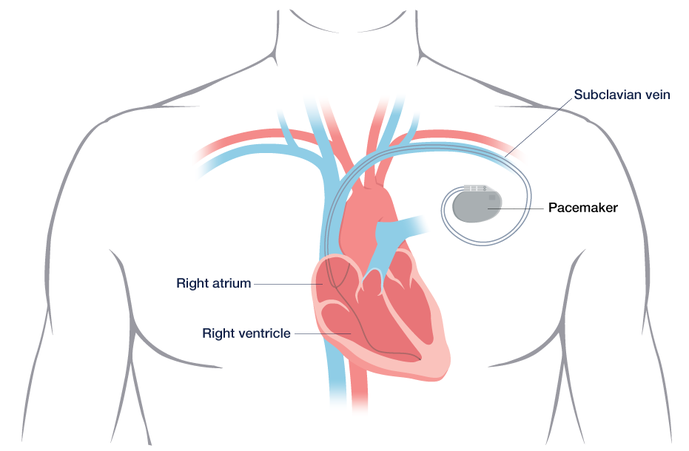
Pacemaker Conditions Treatments Ucsf Health
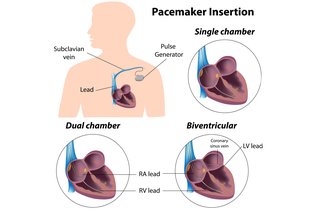
Pacemaker Implantation Why It S Performed Nhs

Don T Fear Pacemakers Harvard Health

Pacemaker Caring For Your Child At Home
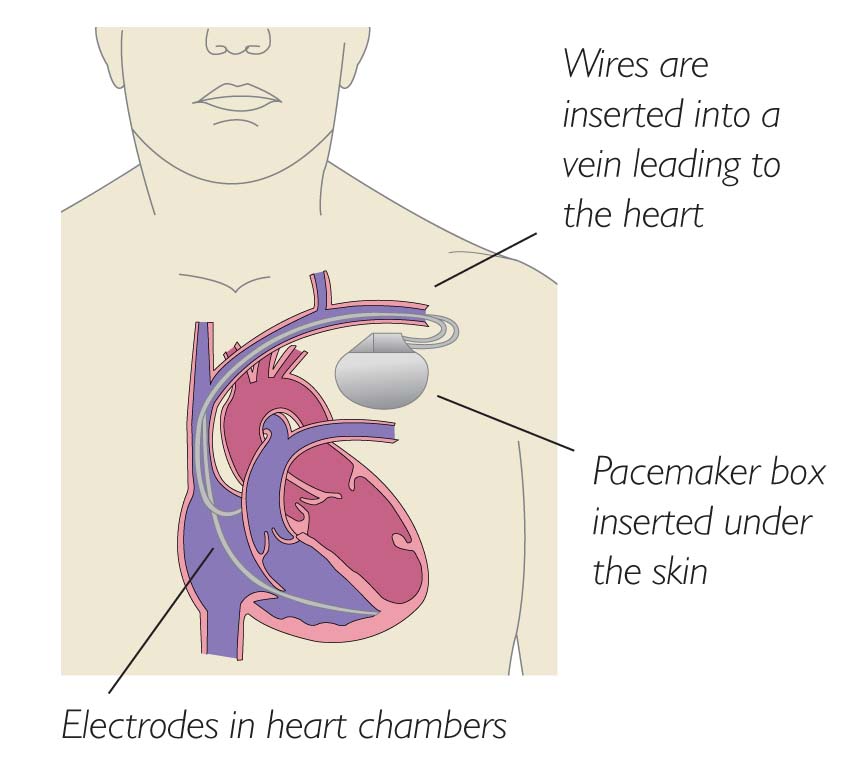
Pacemakers Chest Heart Stroke Scotland
Your Pacemaker Procedure What To Expect

